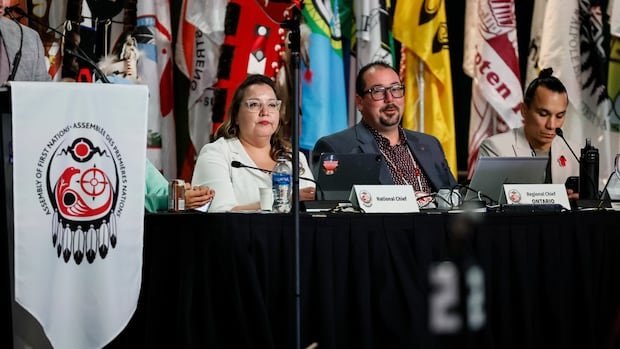The second day of the Assembly of First Nations (AFN) annual general assembly in Winnipeg focused on discussions about systemic racism in policing and the necessity for more First Nations police services. Various leaders and experts addressed the assembly on Thursday, highlighting the challenges faced in policing.
Terry Teegee, AFN regional chief for British Columbia, emphasized the concerning increase in deaths in custody, particularly from August to November 2024, where 10 First Nations individuals passed away following interactions with the police. Teegee stressed that this issue is not isolated but a recurring pattern affecting First Nations people nationwide. He urged Canada to acknowledge the gravity of the situation and address the systemic racism present in the justice system that disproportionately impacts Indigenous communities.
Last December, the AFN issued an emergency resolution demanding a national inquiry into the high number of police-related deaths among First Nations individuals, a resolution that remains active. Jerry Swamp, president of the First Nations Chiefs of Police Association, echoed the importance of revising the funding model for First Nations police services to prevent further tragedies. He highlighted that funding agreements stipulate the provision of culturally responsible policing to communities, emphasizing the need for enhanced training and resources to deliver culturally sensitive policing.
Recent legal cases in Quebec and Ontario have underscored the inadequate funding for First Nations police services in Canada. AFN Quebec-Labrador Regional Chief Francis Verreault-Paul emphasized the urgent need for legislation recognizing First Nations policing as an essential service and providing equitable legal protections. He criticized the existing funding models for falling short of meeting the true requirements of First Nations policing programs, calling for comprehensive reform.
During the assembly, over 50 draft resolutions were scheduled for discussion and voting, with six resolutions deliberated by Thursday afternoon. Among them were two resolutions concerning Bill C-5, the Building Canada Act, which aims to expedite major economic development projects. While the federal government touts economic benefits from the streamlined process, many First Nations leaders caution that it could circumvent the duty to consult with Indigenous communities, potentially infringing on Indigenous rights.
Despite the rejection of a resolution urging the federal government to address the infrastructure gap in First Nations communities and allocate the necessary $350 billion, two resolutions related to the Jordan’s Principle program were passed. These resolutions call for Indigenous Services Canada to revoke recent operational changes and eliminate the backlog of funding requests under Jordan’s Principle promptly.


